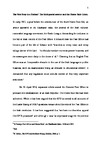The First Step to a Nation? The Irish postal service and the Home Rule Crisis
| dc.contributor.author | Fitzpatrick, Claire | |
| dc.date.accessioned | 2018-11-06T14:49:07Z | |
| dc.date.issued | 2019-04 | |
| dc.identifier.issn | 0018-2648 | |
| dc.identifier.issn | 1468-229X | |
| dc.identifier.uri | http://hdl.handle.net/10026.1/12727 | |
| dc.description.abstract |
<jats:title>Abstract</jats:title><jats:p>This article examines the fate of the proposition in the original third Home Rule bill of 1912 to grant control of the Post Office to the Irish government and the implications this had on debates about the future government of Ireland. It places this within the broader context of calls made by Irish Nationalists for control of the Post Office, disagreements between the Gaelic League and the Post Office, and the choice of the GPO as a rebel target in 1916. A reading of the debates at a parliamentary and popular level reveals wider concerns about the nature of the Home Rule settlement, threats to imperial authority, status, security and financial interests and Ulster. It discusses how national identity and aspirations for sovereignty were expressed through control over this symbolic, vital organ of the state. A study of the Post Office reveals much about communications, questions of patronage and employment and how the state in the nineteenth century became more engaged in people's lives. The fate of the Post Office in Ireland reflected the country's fate. That the Home Rule act of 1914 was suspended during the course of the war and never came into operation opened up possibilities for alternative action. Irish Nationalists understood the importance of institutions for the building of national character. As a space of power, the GPO in Dublin was a physical expression of the British state in Ireland. Its choice as a rebel target in 1916 was a key assertion of identity, power and nation.</jats:p> | |
| dc.format.extent | 228-244 | |
| dc.language | en | |
| dc.language.iso | en | |
| dc.publisher | Wiley | |
| dc.subject | Post Office | |
| dc.subject | national identity | |
| dc.subject | 1916 | |
| dc.subject | Home Rule | |
| dc.subject | Ireland | |
| dc.title | The First Step to a Nation? The Irish postal service and the Home Rule Crisis | |
| dc.type | journal-article | |
| dc.type | Journal Article | |
| plymouth.issue | 360 | |
| plymouth.volume | 104 | |
| plymouth.publication-status | Published | |
| plymouth.journal | History | |
| dc.identifier.doi | 10.1111/1468-229X.12736 | |
| plymouth.organisational-group | /Plymouth | |
| plymouth.organisational-group | /Plymouth/Faculty of Arts, Humanities and Business | |
| plymouth.organisational-group | /Plymouth/Faculty of Arts, Humanities and Business/School of Society and Culture | |
| plymouth.organisational-group | /Plymouth/REF 2021 Researchers by UoA | |
| plymouth.organisational-group | /Plymouth/REF 2021 Researchers by UoA/UoA28 History | |
| plymouth.organisational-group | /Plymouth/Users by role | |
| plymouth.organisational-group | /Plymouth/Users by role/Academics | |
| dcterms.dateAccepted | 2018-11-19 | |
| dc.rights.embargodate | 2021-2-27 | |
| dc.identifier.eissn | 1468-229X | |
| dc.rights.embargoperiod | Not known | |
| rioxxterms.version | Accepted Manuscript | |
| rioxxterms.versionofrecord | 10.1111/1468-229X.12736 | |
| rioxxterms.licenseref.uri | http://www.rioxx.net/licenses/all-rights-reserved | |
| rioxxterms.licenseref.startdate | 2019-04 | |
| rioxxterms.type | Journal Article/Review |


